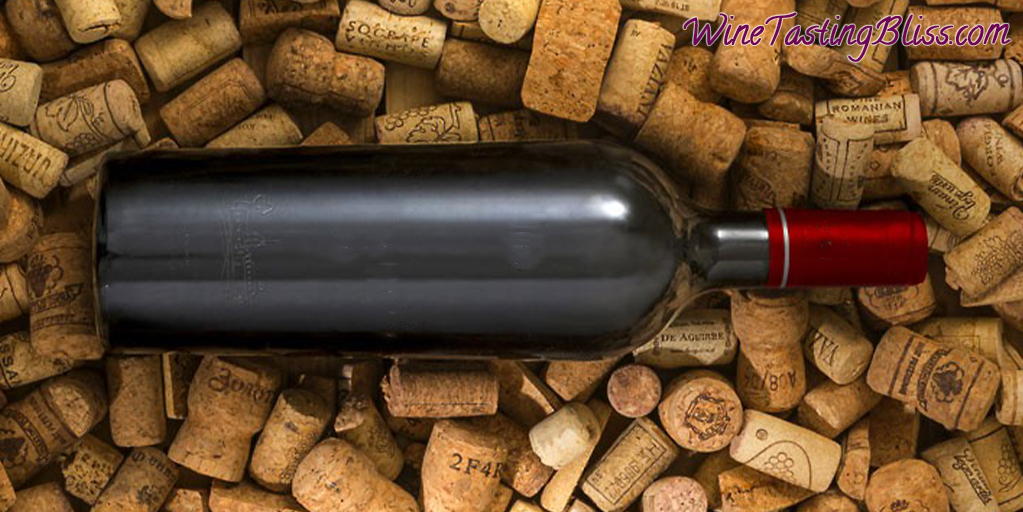So many movies include the line, “Waiter, this wine is corked!” But what does that mean, the wine is corked? Here is what you need to know:
 Most wine bottles come with a cork, and that’s a good thing! Natural cork allows a tiny bit of air to enter the bottle, gradually softening the sharp edges of the wine caused by sulfates and tannins. In the course of one year, the volume of air about the size of one raindrop gets in the bottle. More than that, and the wine oxidizes too much and the flavor is ruined. Modern screw caps prevent oxidation, but a bit too perfectly. The complete lack of air entering the bottle also means that the softening of tannins in the wine is prevented. That’s fine for white wines but not great for reds.
Most wine bottles come with a cork, and that’s a good thing! Natural cork allows a tiny bit of air to enter the bottle, gradually softening the sharp edges of the wine caused by sulfates and tannins. In the course of one year, the volume of air about the size of one raindrop gets in the bottle. More than that, and the wine oxidizes too much and the flavor is ruined. Modern screw caps prevent oxidation, but a bit too perfectly. The complete lack of air entering the bottle also means that the softening of tannins in the wine is prevented. That’s fine for white wines but not great for reds.
 Other things can spoil the wine, too. One common problem is exposure to high temperatures. Even an hour trapped in a hot car trunk can cause irreversible damage to the taste. That’s why we always go winetasting with two coolers; one for water and sodas to keep us all hydrated, and the other for the wine bottles that we inevitably purchase as we tour.
Other things can spoil the wine, too. One common problem is exposure to high temperatures. Even an hour trapped in a hot car trunk can cause irreversible damage to the taste. That’s why we always go winetasting with two coolers; one for water and sodas to keep us all hydrated, and the other for the wine bottles that we inevitably purchase as we tour.
Regardless of the cause of the spoilage; air leakage or environmental factors; corked wine is typically easy to identify. Normally seductive aromas are transformed into scents reminiscent of bad cabbage. Nuanced flavors that normally make wine so popular are dull and sad. Such a waste! Corked wine isn’t harmful though, except to the sterling reputation of fine wine.
 What can be done to prevent corked wine? Showing care in the transportation and storage of wine to control its temperature is a great strategy. Detecting a defective cork is more difficult. When presented with a bottle of wine in a restaurant, it is customary for the waiter to offer the cork for examination upon its removal. Checking the cork for structural integrity can help predict a positive experience, but nothing can take the place of the all-important first sip. Take the time to evaluate the aromas and flavors of this sample pour before accepting the wine for the table. And don’t hesitate to invite the restaurant’s sommelier or floor manager to take a taste if there is any question in your mind. Management is much more interested in earning a loyal customer than in passing off a marginal bottle of wine. Their wine distributor will replace the bottle anyway, with no questions asked!
What can be done to prevent corked wine? Showing care in the transportation and storage of wine to control its temperature is a great strategy. Detecting a defective cork is more difficult. When presented with a bottle of wine in a restaurant, it is customary for the waiter to offer the cork for examination upon its removal. Checking the cork for structural integrity can help predict a positive experience, but nothing can take the place of the all-important first sip. Take the time to evaluate the aromas and flavors of this sample pour before accepting the wine for the table. And don’t hesitate to invite the restaurant’s sommelier or floor manager to take a taste if there is any question in your mind. Management is much more interested in earning a loyal customer than in passing off a marginal bottle of wine. Their wine distributor will replace the bottle anyway, with no questions asked!
Hopefully the situation will never come up for you, but don’t hesitate to speak those famous words, “waiter, this wine is corked!”
About the Author: John grills a mean steak and is always in the market for another wine fridge. Believes that if a winery has more than 10 employees, it's probably too big. Buys wine faster than he drinks it, but who cares?


